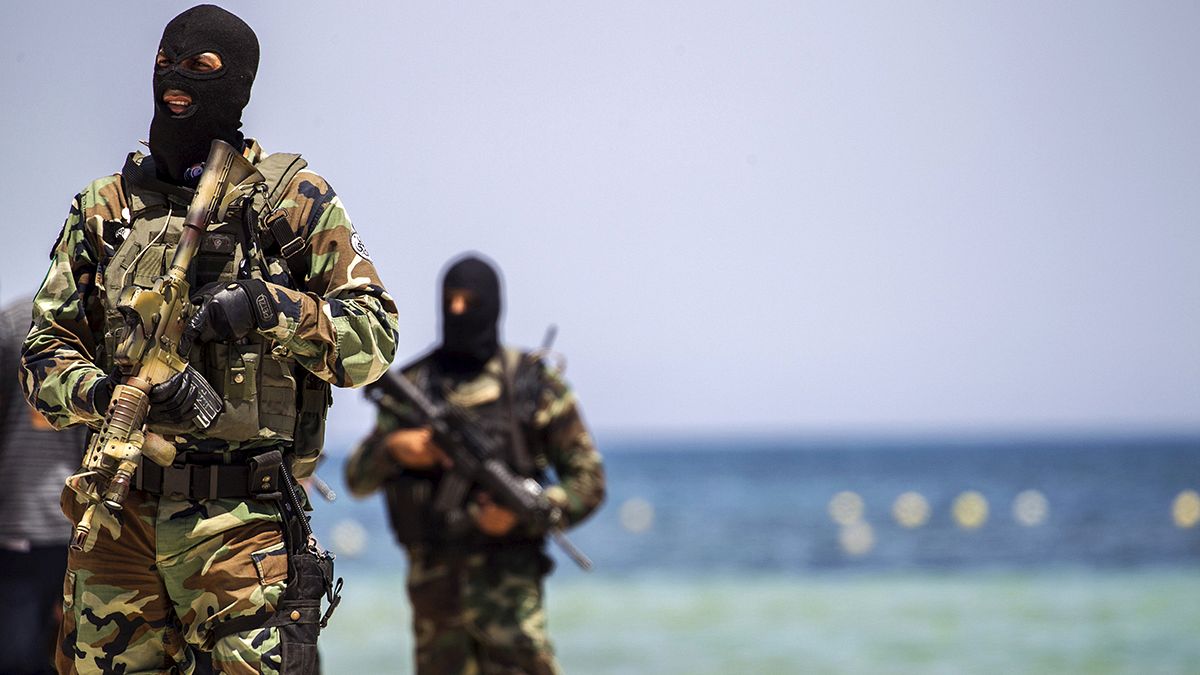Tunisia is deploying 1,000 more armed police to patrol tourist sites and hotels following Friday’s terrorist attack in Sousse, which killed 38
Tunisia is deploying 1,000 more armed police to patrol tourist sites and hotels following Friday’s terrorist attack in Sousse, which killed 38 people, mostly British holidaymakers.
The atrocity is expected to cause serious damage to the country’s tourist industry, which expects to lose at least 460 million euros this year, or about a quarter of its estimated annual tourism earnings.
“The attack had a great impact on the economy, the losses will be large,” Tourism Minister Salma Loumi told reporters, giving a preliminary estimate from the Sousse attack.
The North African country earned 1.75 billion euros in revenues from tourism last year. The sector makes up seven percent of its gross domestic product.
Many Britons in particular have left the country or cancelled holidays since last week.
With tourism providing a major source of income and employment in Tunisia, the government is also looking at economic ways of aiding the industry, with plans to end a visitors’ tax and review debt relief for hotel operators.
Here are five reasons you should still come to #Tunisiahttp://t.co/0yHYtTFAnnhttp://t.co/BYPt5pjDud
— Tunisia Live (@Tunisia_Live) 30 Juin 2015
The Interior Ministry gave euronews more details of security arrangements.
“We’ve already started (putting in place) a range of preventative measures to hit strongly any person who cooperates or promotes terrorist ideology in Tunisia, and we’ve decided to close several mosques here, the ones that are beyond the control of our security,” said spokesman
Mohammad Ali Al-aroui.
“We will carry out vigorous security operations inside tourist institutions, and we will call up army reserves to support the security apparatus as well.”
Investigators are examining possible links between the gunmen and ISIL extremists in neighbouring Libya. A security source said Seifeddine Rezgui had probably spent time in a Libyan training camp and had been in contact with militants across the border, according to Reuters.
Several people are reportedly being held on suspicion of aiding the attack.
Tunisian President Beji Caid Essebsi admitted in an interview broadcast on Tuesday that the country was not prepared for the beach massacre.
“Tunisia cannot fight the terrorist groups alone without a concerted international effort, because terrorism has become a cross-border (phenomenon), especially in the Arab region which suffers from internal conflicts,” reported Euronews correspondent Mohammed Shaikhibrahim from the capital Tunis.
The massacre was the worst of its kind in Tunisia, one of the Arab world’s most secular countries, which transitioned to democracy after a 2011 uprising.
Britain’s Foreign Secretary Philip Hammond said on Tuesday that the UK death toll had risen to 22, with another eight people thought to have died.
Downing Street has said the Britons killed will start being repatriated on Wednesday in a process expected to last several days. Prime Minister David Cameron has announced a national minute’s silence will be held on Friday to honour the victims.
Foreign Office crisis teams continue to work around the clock to support #British nationals in #Tunisiahttps://t.co/PVdTrtdXnq
— Foreign Office (FCO) (@foreignoffice) 30 Juin 2015
